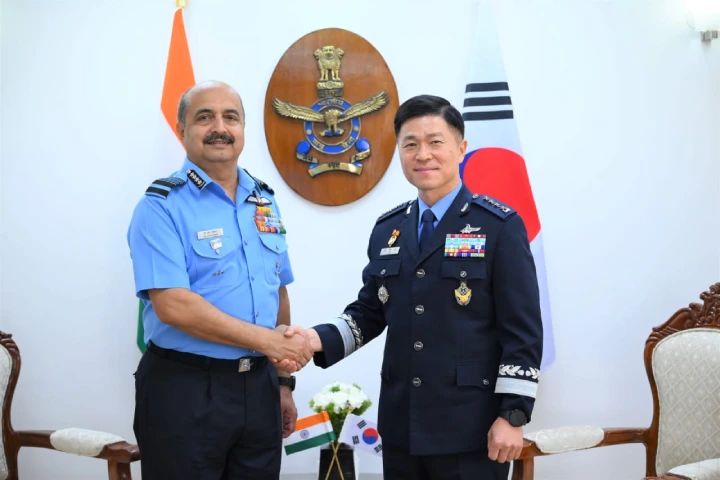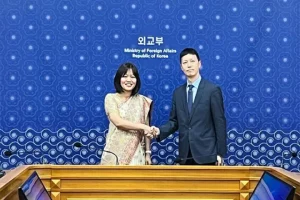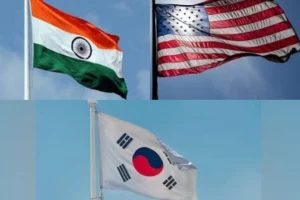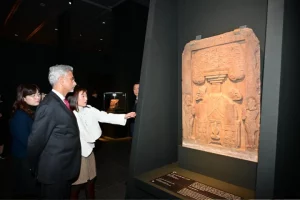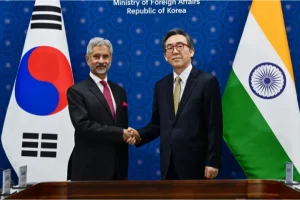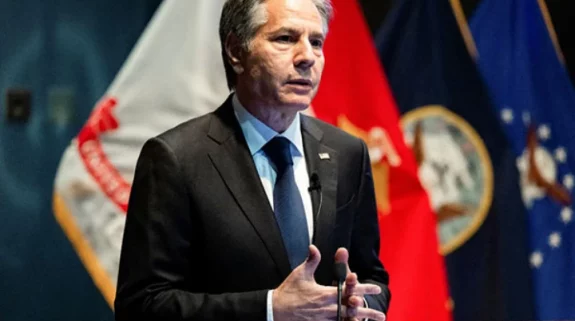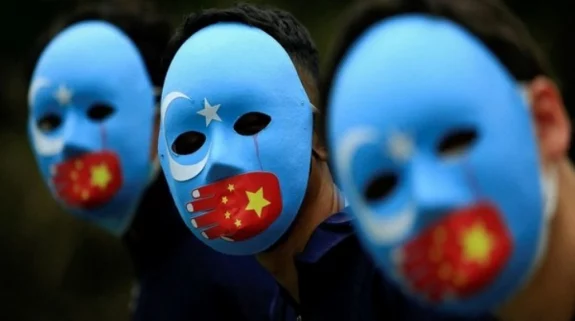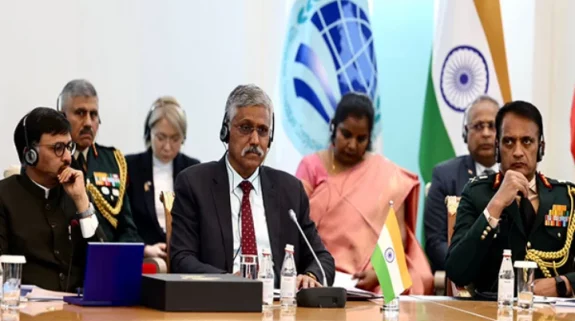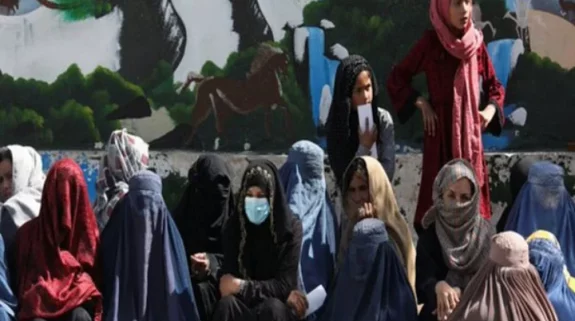South Korean Air Force’s Chief of Staff, General Lee Youngsu, called on Indian Air Force Chief, Air Marshal VR Chaudhari, in New Delhi on Monday.
The two leaders, as they met, discussed issues of mutual interest between the forces of the two countries.
In a post on X, the Indian Air Force posted pictures of their meeting, and wrote, “General Lee Youngsu, Chief of Staff, Republic of Korea Air Force called on the CAS Air Chief Marshal VR Chaudhari in New Delhi.”
“Issues of mutual interest & means to further enhance cooperation between the two Air Forces were discussed during the meeting,” the IAF added.
General Lee Youngsu, Chief of Staff, Republic of Korea Air Force called on the CAS Air Chief Marshal VR Chaudhari in New Delhi.
Issues of mutual interest & means to further enhance cooperation between the two Air Forces were discussed during the meeting. pic.twitter.com/1SCjw9H3h9
— Indian Air Force (@IAF_MCC) March 18, 2024
The defence relations between the two countries have expanded in recent years, spurred by the convergence of strategic interests, shared mutual goodwill and several high-level exchanges.
India, the United States and South Korea have committed to coordinate measures to protect sensitive technologies and build trusted technology ecosystems in the region and globally.
The three nations convened an inaugural trilateral technology dialogue in Seoul on Wednesday last week.
Following the inauguration of the US-India initiative on Critical and Emerging Technology (iCET) in January 2023 and the US-ROK Next Generational Critical and Emerging Technology Dialogue in December 2023, the US, India, and Korea convened the dialogue in South Korea.
“They also committed to co-ordinate measures to protect sensitive technologies and build trusted technology ecosystems in the region and globally,” the US embassy and consulate in South Korea said in a statement.
According to the statement, in this first trilateral technology meeting, the US, South Korea, and India discussed opportunities to cooperate on semiconductor supply chains.
Moreover, they also discussed opportunities in telecommunications and digital public infrastructure; artificial intelligence; quantum; space; advanced materials; clean energy and critical minerals; defence industrial development and production; and biotechnology, including active pharmaceutical supply chains.






